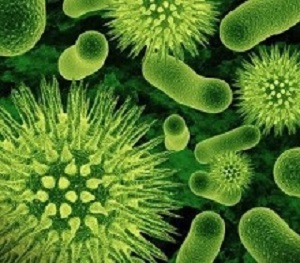 Gut bacteria may play a decisive role in the weight regulation and weight loss, found a Danish study.
Gut bacteria may play a decisive role in the weight regulation and weight loss, found a Danish study.
"Human intestinal bacteria have been linked to the increasing prevalence of overweight and obesity, and scientists have started to investigate whether the intestinal bacteria can play a role in the treatment of overweight. But it is only now that we have a breakthrough demonstrating that certain bacterial species play a decisive role in weight regulation and weight loss" says Professor Arne Astrup, head of the department of nutrition, exercise and sports at the University of Copenhagen, Denmark.
A relationship between two groups of intestinal bacteria is decisive for whether overweight people lose weight on a diet that follows the Danish national dietary recommendations and contains a lot of fruit, vegetables, fibre and whole grains. In the study 31 subjects ate the New Nordic Diet for 26 weeks and lost an average of 3.5kg, whereas the 23 subjects eating an Average Danish Diet lost an average of 1.7kg. Thus weight loss was on average 1.8kg greater in the subjects on the New Nordic Diet.
When the subjects were divided by their level of intestinal bacteria, it was found that people with a high proportion of Prevotella bacteria in relation to Bacteroides bacteria lost 3.5kg more in 26 weeks when they ate a diet composed by the New Nordic Diet principles compared to those consuming an Average Danish Diet.
Subjects with a low proportion of Prevotella bacteria in relation to Bacteroides did not lose any additional weight on the New Nordic Diet. Overall, approximately 50 percent of the population has a high proportion of Prevotella-bacteria in relation to Bacteroides-bacteria.
"The study shows that only about half of the population will lose weight if they eat in accordance with the Danish national dietary recommendations and eat more fruit, vegetables, fibers and whole grains. The other half of the population doesn't seem to gain any benefit in weight from this change of diet," says Assistant Professor Mads Fiil Hjorth at the department of nutrition, exercise and sports at the University of Copenhagen. He continues: "These people should focus on other diet and physical activity recommendations until a strategy that works especially well for them is identified."
The researchers emphasise that they have already confirmed the results in two independent studies, so they are certain that these results are credible.
The results show that biomarkers (faecal samples, blood samples, or other samples from our body) which says something about our state of health, should play a far greater role in nutritional guidance. Simply because biomarkers allow us to adapt the guidance to the individual. "This is a major step forward in personalised nutritional guidance. Guidance based on this knowledge of intestinal bacteria will most likely be more effective than the "one size fits all" approach that often characterises dietary recommendations and dietary guidance," says Hjorth.
At present it is primarily research units at universities and other academic institutions that examine the composition of intestinal bacteria, but as an effect of this breakthrough the University of Copenhagen has licensed a company in Boston, US, to develop and publish a concept based on this research, that will be of benefit to obese people.
Abstract
Based on the abundance of specific bacterial genera, the human gut microbiota can be divided into two relatively stable groups that might play a role in personalized nutrition. We studied these simplified enterotypes as prognostic markers for successful body fat loss on two different diets. A total of 62 participants with increased waist circumference were randomly assigned to receive an ad libitum New Nordic Diet (NND) high in fiber/wholegrain or an Average Danish Diet (ADD) for 26 weeks. Participants were grouped into two discrete enterotypes by their relative abundance of Prevotella spp. divided by Bacteroides spp. (P/B ratio) obtained by quantitative PCR analysis. Modifications of dietary effects of pre-treatment P/B group were examined by linear mixed models. Among individuals with high P/B the NND resulted in a 3.15 kg (95%CI 1.55;4.76, P<0.001) larger body fat loss compared to ADD whereas no differences was observed among individuals with low P/B (0.88 kg [95% CI −0.61;2.37, P=0.25]). Consequently, a 2.27 kg (95%CI 0.09;4.45, P=0.041) difference in responsiveness to the diets were found between the two groups. In summary, subjects with high P/B-ratio appeared more susceptible to lose body fat on diets high in fiber and wholegrain than subjects with a low P/B-ratio.
Authors
MF Hjorth, HM Roager, TM Larsen, SK Poulsen, TR Licht, MI Bahl, Y Zohar, A Astrup
[link url="http://nexs.ku.dk/english/news/2017/your-stools-reveal-whether-you-can-lose-weight/"]University of Copenhagen material[/link]
[link url="http://www.nature.com/ijo/journal/vaop/naam/abs/ijo2017220a.html?foxtrotcallback=true"]International Journal of Obesity abstract[/link]
